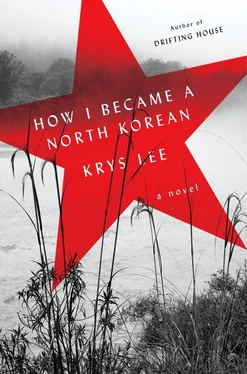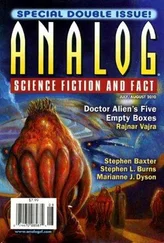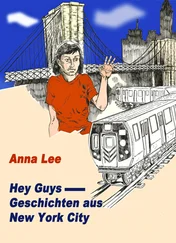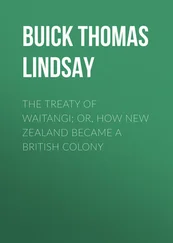The man didn’t turn to glance at us, either so intent on the dirt road ahead or afraid to let us see his face, as if his expression would betray too much. But to my eomeoni he said, “Are you warm enough?” with such tenderness, it was as if his voice were stroking her hand and trying to calm her. It didn’t matter to me that she responded to his quiet anguish with distant, measured gratitude. I knew then that they cared about each other.
It was too much: the sudden flight, the amorphous shape of the future, the revelation of my mother’s lover. Or at least a man who loved her enough to pay enormous bribes and put himself in danger, a man she might have loved back if she weren’t a married woman.
I leaned over the passenger seat up front. “How do you know each other?”
Eomeoni turned back to me, her face hidden beneath a rough woolen hood I’d never seen before. “We were childhood friends,” she said. “You shouldn’t even know that much.”
“Does that mean you’ve been in contact all this time?”
“He’s helping us at great risk when no one else can! Don’t ask an older person such questions. I didn’t raise you that way.”
“It’s all right,” he said. “The poor kids.”
And just as I was about to ask what I really wanted to know, her voice broke as she said, “Ask the Great General about your abeoji, not me. I can’t answer your questions.”
I became afraid, and withdrew into silence.
• • •
The cement roads outside Pyongyang and my Pothong River and the red splash of flags had long turned into a stretch of solitary villages and sentry posts, where Mr. Rhee prepared to flash what must have been forged travel documents. He never had to, because of his special license plate. We passed a group of prisoners relieving themselves by the road, mountain after denuded mountain. The countryside frightened me; it always had. The landscape was another country; not my Pyongyang of tree-lined boulevards, a world apart from my youth spent playing sports with the other children at the chandeliered Children’s Palace. I tried not to think about my abeoji, though my mind was filled with him, or about this man risking his life to save ours. Years later I would hear other stories of people like him.
After a private farewell that I tried painfully to ignore, we got out of the car, and the man spoke to the burly driver of a battered white truck before disappearing into the darkness. It was one of the many private buses that plied the country, one emblazoned with red lines that I would learn was an old Red Cross ambulance. Such symbols meant nothing to me yet. From the back of the truck where only hinges were left of its doors, crouched figures stared out at us. I shrank from their stares, their canvas coats and coarse scarves and, especially, from my growing fear that the differences between us were becoming less important. I’d traveled through the countryside on trips to visit less fortunate relatives, but I hadn’t really seen it.
“We’re lucky to be here at all.” Eomeoni sent me a warning glance from under the scarf and hood veiling her. “Don’t forget that.”
“Once you wake up, we’ll be in China,” I whispered to my dongsaeng, though saying those words made it too real for me. Smoke exploded from the truck’s exhaust pipe, and its engine grunted into the barren rice fields.
“Will we really?” she said, and held on tighter to my hand.
My dongsaeng heaved with dry sobs. She had no more tears left — she had wept all night in the security van and the man’s sedan that had intercepted it. I kept an arm around her, angry that I could do no more for her. She watched the men who jumped on and off after slipping the driver payments of cigarettes or liquor, and sucked in her breath each time the monotony of the pothole-filled road behind us suddenly revealed a boy shouldering squirming chickens in a sack or women traveling with A-frames on their backs. Shriveled objects in the landscape of harrowed farmland. At each sentry post we flashed our forged papers.
When the truck suddenly lurched and sagged backward to a stop, the driver got out and slunk over, a cigarette hanging from his lips. “Men push, women out.”
It was just a pothole, but my spirits lifted. The organizing, the discarding of my coat, all of me focused on pushing against the hard metal back of the truck. The joints of my fingers popped dangerously, my shoulders made a cracking music, and the fact of the body helped me forget the body.
“A bit of the old back-and-forth,” a man said once the truck was on firm ground, and he thrust his hips in and out, laughing with the other older men.
“There are women present,” I said, so quietly that no one but my sister could hear.
My sister might have grown into a lovely woman. She might be tall and graceful like my mother but with a sweetness all her own. Even then she was like a deer, quick and easily spooked and so sensitive to others, always knowing when you longed for a book or a Choco Pie and hurrying up to you with her offering. But when Eomeoni handed each of us a sweet potato and said, “I’m so ashamed of myself, but this is all I have to give you for dinner. We need to ration our supply,” my sister squeezed her face into a tight ball and refused to accept hers.
Our eomeoni turned away. Look at me, her posture said. I’ve failed as your eomma.
She must have felt the failure deeply. She was the kind of eomma who stayed up late at night helping us with our projects and skillfully handled a schoolteacher who had slighted my dongsaeng . She had no compunction about using bribes and coercion for us, when necessary. Her family mattered most to her. I was angry at her, grateful and confused, and wondered how much I really knew about her. I weighed a sweet potato in each of my hands.
“Eomeoni, sweet potatoes are filling,” I said. I would never be able to eat another sweet potato again.
While the driver had a cigarette, I spread a handkerchief across the fender and stripped the skin from both sweet potatoes one long layer at a time.
“Don’t you want dinner?” I asked.
My dongsaeng shook her head. “I’m so tired and dirty — I can’t eat like this.” She eyed me cautiously as if expecting punishment. “How can I eat when Abba’s nowhere?”
“It’s what he would want. If he were here, he would tell you in his politician’s voice what it took that farmer to plant that sweet potato.”
I conjured up Abeoji on our way to a mountainside holiday, how he would make a curt, careless gesture toward a farming collective. The way his free hand would half-curl as if catching the wind, then open again and release it.
“And he’s not nowhere — he’s just not here, with us.”
“Obba,” she said, and started to cry. “You don’t have to lie to me and pretend everything’s fine. I’m not a baby.” She took a sweet potato as if it were a baseball and hurled it into the dark.
A collective gasp roiled from the truck. My dongsaeng had never been so fierce or so coarse, and I was paralyzed, unsure whether to be her obba and play the disciplinarian or to let her grieve, strike out at the darkness that had swallowed our abeoji.
As the sweet potato arced into the dark and became waste, a young eomma ’s expression brittled with anger. With her baby hanging from a white strip of cloth across her back and neck, she scrambled out and, like a rice farmer, knelt and began hunting. This hunger was everywhere and in the end would belong to all of us, but I only cared about my poor dongsaeng, who was hungry for other things.
Eomeoni, who had been shrouded in silence for most of the day, now held my dongsaeng tightly to her. She said into the darkness, “Let the farmer keep his sweet potato! My daughter doesn’t want your miserable fare.”
Читать дальше












